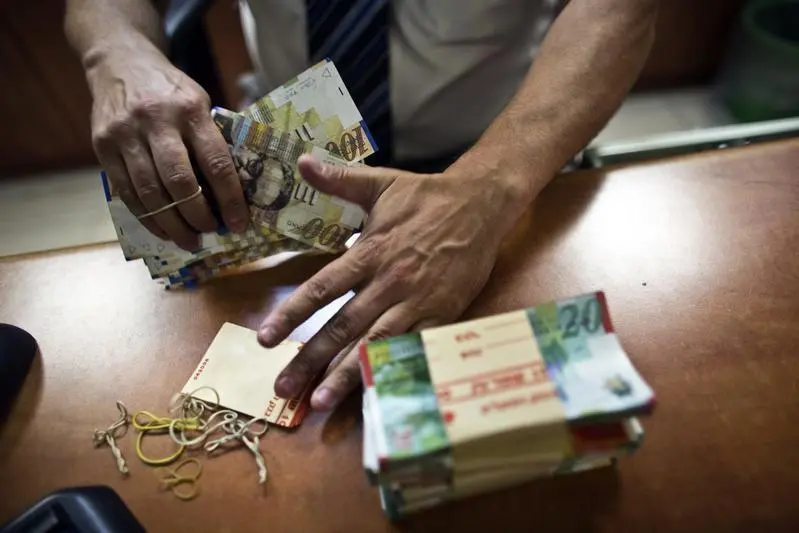PHOTO
Expectations mounted on Monday that Israel's central bank could intervene in FX markets to prop up the shekel which has been one of the weakest currencies in the world since plans were laid out to overhaul the judiciary, analysts said.
The shekel has slumped 8% versus the dollar since last month's proposals to give the government greater sway on selecting judges and limit the power of the Supreme Court to strike down legislation.
The depreciation, which totals 6% when measured against Israel's main trading partners, has alarmed investors wary that it might be joining the growing list of emerging markets taking a more authoritarian stance to decision making.
Analysts at JPMorgan said on Monday that the speed and volatility of the shekel's drop in recent weeks had been "somewhat surprising" and that the Bank of Israel (BoI) may soon have to step in "to break the negative feedback loop".
If that did happen, it would be the first time since the shekel became a freely-floating currency two decades ago that BoI has intervened to strengthen it.
"We think the most likely announcement from the BoI would be the introduction of a Dollar-Shekel swap facility," JPMorgan's analysts said. "Alternatively, given the sizeable level of FX reserves, the central bank could also look to directly intervene in the FX market with FX sales."
Critics of the planned law changes say Prime Minister Benjamin Netanyahu - on trial on graft charges that he denies - is pursuing steps that will hurt Israel's democratic checks and balances, enable corruption and bring diplomatic isolation.
Proponents say the changes are needed to curb what they deem an activist judiciary that interferes in politics.
Such has been the scale of the shekel's fall since the plans emerged that local media have reported that BoI Governor Amir Yaron held an emergency meeting last week with the country's Financial Stability Committee.
This followed a larger-than-expected 50-basis-point interest rate hike at the BoI's last policy meeting. It was its eighth hike in a row.
One of Israel's biggest banks, Bank Hapaolim, also said FX market intervention could be imminent, adding that inflation could also end up at a higher-than-expected 3.5%.
The BoI currently forecasts inflation will fall back from 5.4% to the government's target of 1-3% this year, though it estimates a pass-through of as much as 20% to inflation from the dollar-shekel rate.
"We believe that if the depreciation of the shekel continues in coming weeks, the Bank of Israel may intervene in the foreign exchange market," Bank Hapaolim's chief economist, Victor Bahar, wrote.
Wall Street investment banks including BofA and Morgan Stanley have also raised the possibility of invention. Some have also suggested an out-of cycle rate hike ahead of the BoI's next scheduled meeting on April 3.
"Emergency rate hikes look least likely to us," JPMorgan said.
(Editing by Andrew Heavens)





















